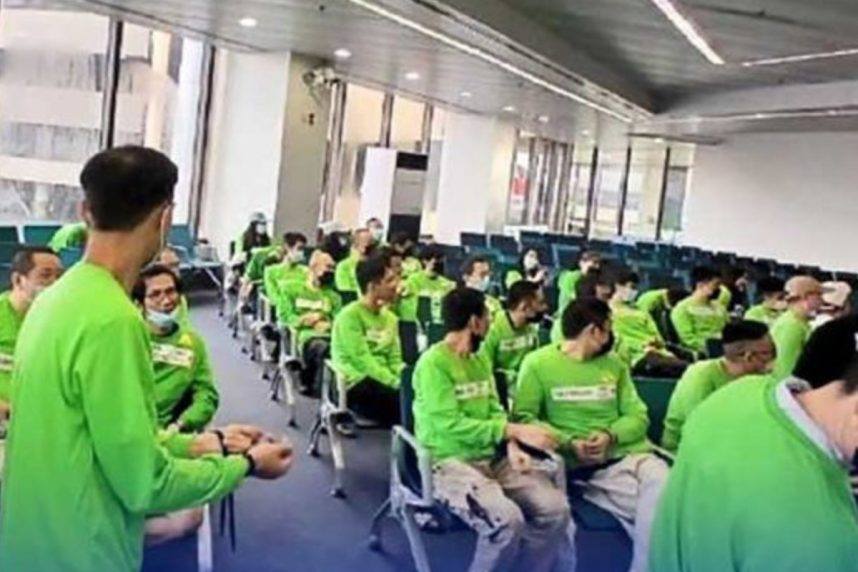Philippines-Based Illegal Online Gaming Operation Leads to 91 Chinese People Being Deported
Posted on: September 25, 2025, 12:48h.
Last updated on: September 25, 2025, 09:51h.
- The Philippines has deported 91 Chinese nationals back to China
- The deportees were accused of running an illegal gambling operation
- POGOs — Philippine Offshore Gaming Operators — were banned in 2024
The Philippines is sending 91 Chinese citizens back to the People’s Republic of China after they were arrested and charged with helping to run an illegal online casino gambling enterprise.

The Philippines Immigration Bureau said in a release that it recently deported 91 “illegal Chinese workers” who had continued to work in an offshore gaming operation after the Philippines outlawed the industry last year. The government rescinded licenses for POGOs, or Philippine Offshore Gaming Operators, in July 2024 at the direction of President Ferdinand “Bongbong” Marcos Jr.
Immigration officials detailed that the 91 Chinese nationals worked in an unauthorized POGO hub in a variety of capacities.
We remain steadfast in enforcing our immigration laws. Those who abuse their stay in the Philippines and engage in unlawful activities will be dealt with accordingly,” said Immigration Commissioner Joel Anthony Viado.
The bureau added that the deportees were apprehended during various interagency raids, as authorized through the Presidential Anti-Organized Crime Commission.
Immediate Deportation
The Philippines Immigration Bureau explained that the 91 Chinese foreigners were put on a Philippines Airlines flight bound for China on the morning of September 19. Their deportations were expedited through a collaboration with the Chinese Embassy in Manila.
POGOs were a $3 billion industry before Marcos Jr. heeded calls from China and other Asian nations to terminate the Filipino iGaming market. POGOs were Philippines-based online gaming platform providers that targeted players in countries where online casinos remained illegal — primarily, China.
Marcos Jr.’s predecessor, Rodrigo Duterte, refused China’s calls to ban POGOs. In 2019, the controversial leader, who is today facing the legal ramifications of his drug war and “shoot first, ask questions later” directive to law enforcement, said POGOs provided too great a tax and economic benefit.
China cannot dictate to us,” declared one of Duterte’s top aides.
Marcos Jr. took a different path to appease China and strengthen its relations with the global superpower. Many former POGO employees are paying the price.
Imprisonment Likely
Tens of thousands of Chinese people were lured to the Philippines on promises of better pay and living conditions by working in POGOs. Those promises weren’t upheld, with many POGO workers reporting slave-like workplaces and less pay than expected.
With the industry no more, many of those Chinese workers have since struggled to find work, and returning home isn’t an option because of legal threats.
The 91 deported POGO workers face prosecution upon returning to China. The CPC bans all Chinese people from not only gambling overseas, but also working in a gaming capacity. Beijing says cross-border gambling threatens the national security of China and its communist financial system.
An estimated 130K Chinese people worked for POGOs at the height of the industry in 2019. POGO companies needed Mandarin-speaking people to work in their call centers.
Numerous international human rights organizations have regularly cited Chinese prisons as being among the world’s worst, with torture, forced labor, and inhuman conditions the norm.
No comments yet